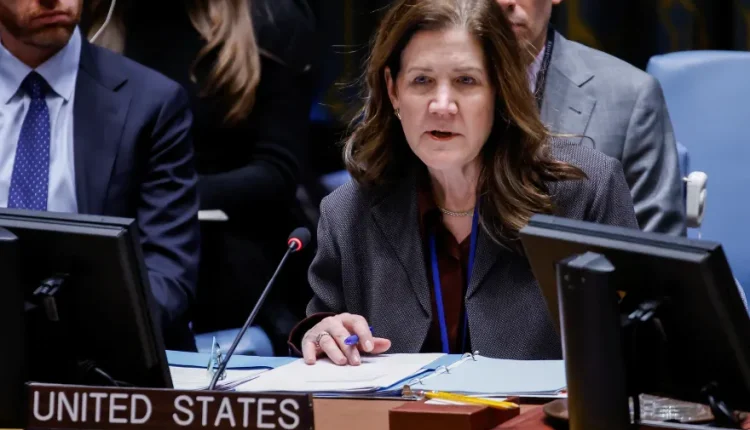U.S. Urges Syrian Interim Authorities to Renounce Terrorism, Uphold Regional Stability
By Kardo Roj
NEW YORK, U.S. (North Press) – The United States has called on Syria’s interim authorities to adopt a transparent and accountable leadership, renounce all forms of terrorism, and prioritize regional stability, in a statement issued Monday by the U.S. Embassy in Syria.
The message, delivered by Ambassador Dorothy Shea, Acting U.S. Representative to the United Nations in New York, reflects mounting international expectations for Syrian governance amidst ongoing conflict and fragile recovery efforts after more than a decade of war.
U.S. Outlines Key Conditions for Support
In a statement posted on its official account, the U.S. Embassy in Syria emphasized that the Syrian people “deserve leadership that is transparent, accountable, and fully committed to a more peaceful and prosperous future after 54 years of ruinous rule under the Assad regime.”
The United States outlined a series of expectations for Syrian interim authorities, stating it would “hold [them] accountable” for the following measures:
Full renunciation and suppression of terrorism.
Adoption of a policy of non-aggression toward neighboring countries.
Exclusion of foreign terrorist fighters from any official roles.
Prevention of Iran and its proxies from exploiting Syrian territory.
Destruction of any remaining weapons of mass destruction.
Cooperation in recovering U.S. citizens disappeared in Syria.
Guaranteeing security and fundamental freedoms for all Syrians.
Ambassador Shea’s remarks underline Washington’s continued engagement with the evolving political landscape in Syria, while implicitly setting a standard for any transitional governance structures.
Regional Implications and Ongoing Challenges
The call comes at a time when Syria remains divided among multiple forces. The Autonomous Administration of North and East Syria (AANES), supported by the Syrian Democratic Forces (SDF), continues to administer large swathes of territory in the northeast, focusing on security, counterterrorism operations against Islamic State (ISIS) remnants, and efforts to stabilize war-affected communities.
Meanwhile, areas in the northwest and parts of the north remain under the control of factions aligned with the Turkey-backed Syrian National Army (SNA) and Hayat Tahrir al-Sham (HTS), presenting persistent security challenges.
The U.S. has consistently recognized the SDF as a vital partner in combating terrorism and maintaining regional stability, particularly after the territorial defeat of ISIS. Conversely, concerns about extremist elements operating within Turkish-backed formations have occasionally surfaced, though Washington has refrained from direct confrontation with Ankara over the issue.
International Focus on Political Transition
The renewed U.S. emphasis on governance standards highlights the broader international interest in achieving a sustainable political transition in Syria. United Nations-backed efforts to advance constitutional reform and national reconciliation have largely stalled, amid deep-seated divisions and external interventions.
Ambassador Shea’s comments at the United Nations reaffirm Washington’s stance that any future political process must prioritize Syrians’ rights and security, while limiting the influence of external actors.
Although the Syrian interim authorities referenced were not explicitly named, observers suggest the message is directed broadly at entities across opposition-held areas, where fragmentation and differing external loyalties complicate efforts to establish coherent governance.
Future Prospects
As Syria enters another year of political uncertainty, the United States’ clear articulation of conditions for engagement signals a continued commitment to influencing developments on the ground.
The evolving role of the AANES and the SDF, who have built a reputation for effective governance and security in northeast Syria, may gain greater attention from international actors seeking more stable and accountable partners in the broader Syrian landscape.
Looking forward, adherence to principles of non-aggression, counterterrorism, and respect for rights will likely define future relations between Syrian political bodies and the international community.

